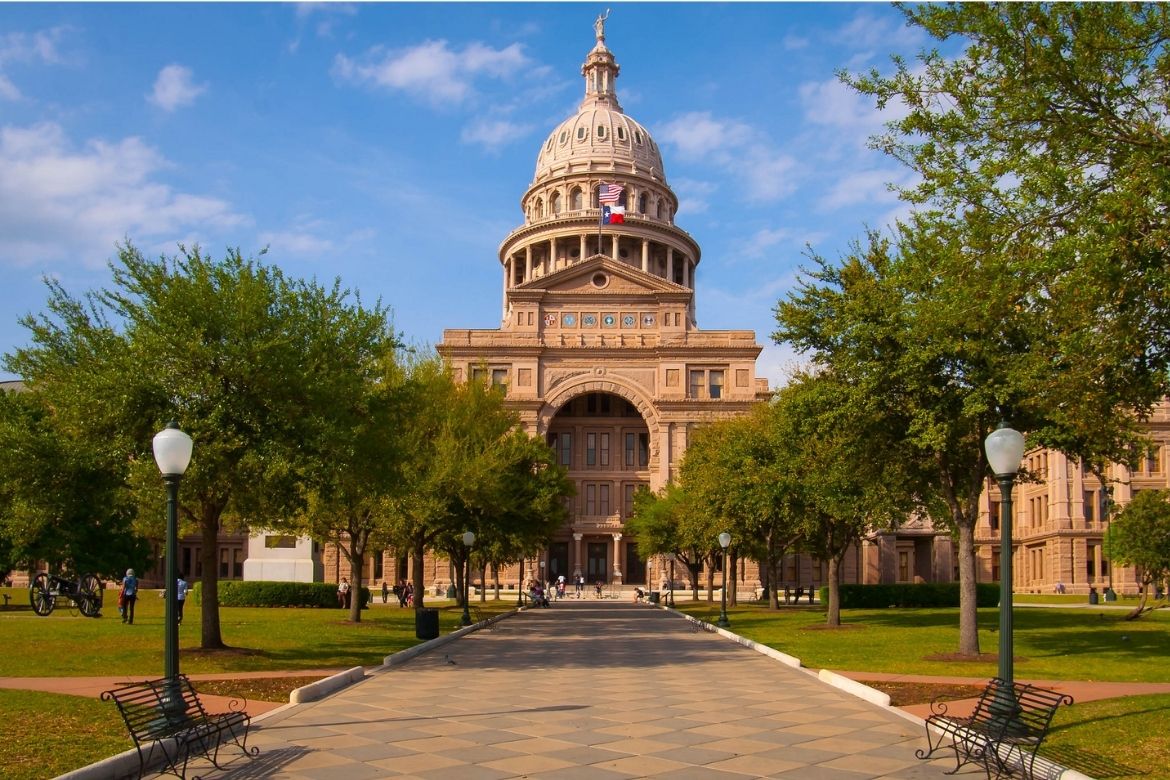Week of November 29 – December 3
Samsung taps Taylor for new plant
Electronic giant Samsung announced last week that it will build a new semiconductor manufacturing facility in the Central Texas town of Taylor, about 40 miles northeast of Austin. The $17 billion investment will be the largest foreign direct investment in Texas to date and brings the company’s total investment in the state to $35 billion.
Samsung already operates a facility in Austin, its lone U.S. manufacturing plant. The deal was helped along with a $27 million Texas Enterprise Fund grant, according to Gov. Greg Abbott’s office. In addition, city, county and school district officials put together incentive packages worth of hundreds of millions of dollars, according to the Austin American-Statesman.
The project will create more than 2,000 high-tech jobs, thousands of indirect jobs and at least 6,500 construction jobs. Construction is slated to begin early next year with a target completion date in the second half of 2024.
“Samsung Austin Semiconductor has been proud to call Texas home for more than 25 years,” said Dr. Sang Sup Jeong, president of Samsung Austin Semiconductor. “We are excited about our growth and future opportunities in Central Texas and appreciate the support from all Central Texas leaders.”
Winter Storm Uri’s impact on pine trees studied
The damage caused by Winter Storm Uri to the state’s trees is still being assessed. While many hardwoods whose crowns turned brown after several days of bitter cold have recovered, pine trees in East Texas are now suffering from an invasion of beetles. The beetles attack both stressed and healthy pine trees, but can only successfully invade severely stressed pine trees, such as those recovering from Uri.
“Looking back at the past nine months, the fact that these beetles are now taking center stage in the decline and death of our pine trees is inevitable,” said Allen Smith of the forest service. “Uri was a major stressor of trees, and the following extended droughty conditions throughout the pine regions of East Texas added additional stress.”
Standing beetle-killed trees should be removed and burned or otherwise disposed of to stop the emergence of beetles. Smith said the best-case scenario for pine trees is for a wet winter in East Texas so that trees have ample soil moisture when they start growing again in the spring.
State to get $408 million for charging stations
Texas is slated to receive $408 million for electric car charging stations under the recently passed federal infrastructure plan and could apply for additional grants, according to The Dallas Morning News. The money comes under a Biden administration plan to shift half of passenger vehicle sales in the U.S. to electric vehicles by 2030.
The state needs more than 14,000 charging stations to support the number of electric vehicles projected to be traveling on Texas roadways by 2030, according to a 2018 report from Environment Texas. The state had just over 52,000 registered electric vehicles as of last June, according to the Morning News story.
COVID-19 cases drop, as do deaths
While new cases of COVID-19 are spiking again in the Upper Midwest and Northeast, the number in Texas dropped during the past week to 14,745 — down 36% from the previous week. The number of new deaths reported in Texas by the Coronavirus Resource Center at Johns Hopkins University in the past week totaled 254, down 57% from the previous week.
However, the number of hospitalizations of lab-confirmed COVID-19 patients in the state was virtually unchanged at 2,681, according to the Texas Department of State Health Services.
The number of Texas who are fully vaccinated continues to inch upward, with 15.838 million reported by DSHS as of Sunday. That is 54.3% of the state’s total population.
Still, while noting hospitalizations are at their lowest levels in many months, officials are still cautious. “We’re certainly in a better place right now than we have been in quite a while,” Chris Van Deusen, spokesperson for the Texas Department of State Health Services, told the Texas Tribune. “But we are sort of starting to see things change again. And you know, if there’s one thing we know about this pandemic, it’s that it’s going to keep changing.”
Meanwhile, another variant of COVID-19 named “Omicron” has been discovered in South Africa and several other countries. Experts are concerned that the new variant may spread more aggressively than previous versions and could prove to be resistant to current vaccines.
Experts urge Texans to get flu shots
A resurgence of influenza this winter is overdue, and Texans are urged to get vaccinated.
“Flu is overdue right now,” Dr. Donald Murphey, an Austin pediatric infectious disease specialist and chair of the Texas Medical Association Council on Science and Public Health, told the Texas Newsroom.
“We should be concerned about flu returning. Flu is here every year consistently and last year, with mitigation for COVID, we didn’t have a flu season at all,” he said.
Murphey added that this year’s flu season could be even worse as the decline in COVID-19 cases leads to an increase in public gatherings with fewer people wearing masks. The Texas Medical Association encourages flu shots for everyone 6 months of age and older. TMA says Texans can safely get vaccinated for the flu and COVID-19 at the same time.





























